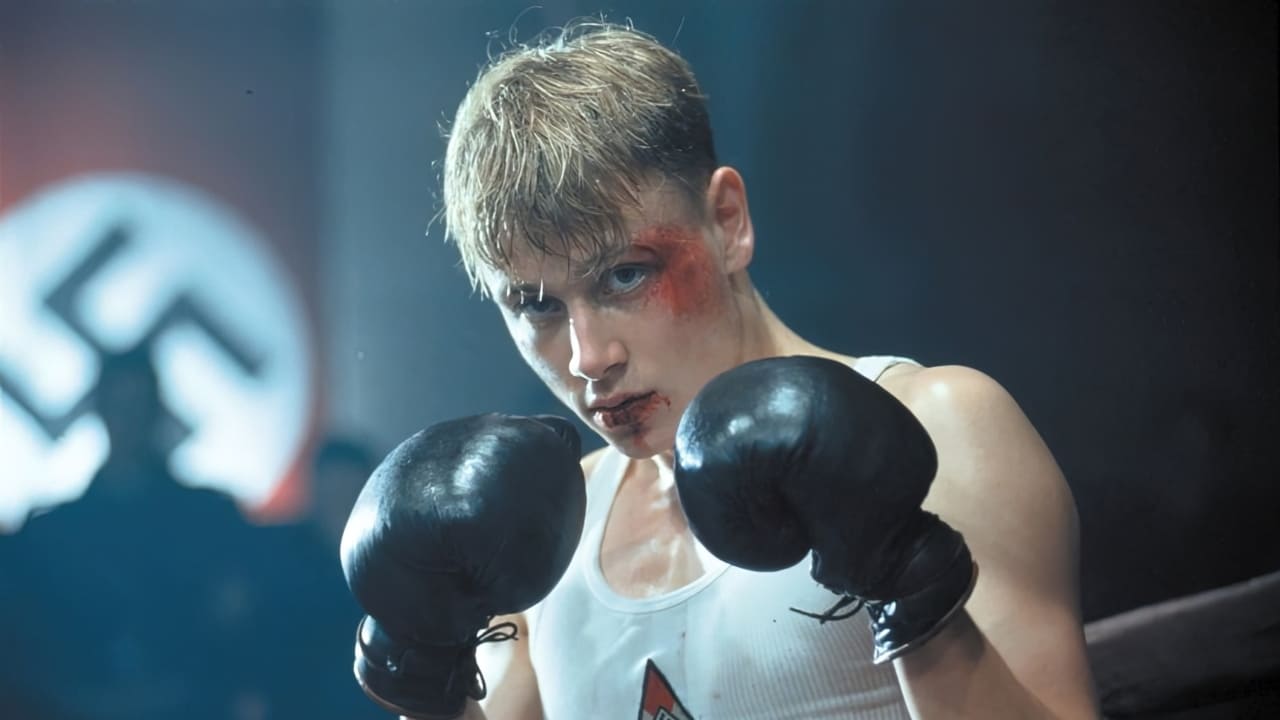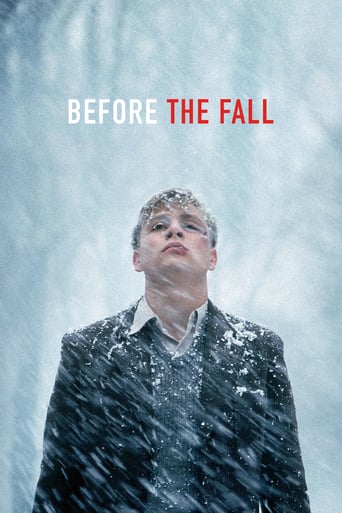

I really liked this movie about a Nazi school for boys/young men.First of all, there is always something intriguing about the uniforms and the hails and the atmosphere of Hitler Germany. There are moments of great emotion, for example the first day of school when the top Nazi gives a speech about how The Thousand Year Reich needs many leaders, not just in Berlin, but in Moscow, Washington and Cape Town. He tells them they need to be strong. They reply by all rising up at the same time and singing a song about heroism and National Socialism. Friedrich, the protagonist, smiles and can barely hold himself while singing. It seems he has come home where he belongs.However, the film unveils how difficult it is for some if ALL are supposed to conform and fit into a mold. There are painful scenes, for example a few involving a cadet who wets himself in bed. He gets punished in the worst way, and it all ends in tragedy. The real irony is how the school board takes advantage of what happens. Very powerful and revealing.The son of the local Governor also has a hard time fitting in. He is artistic, not really into sports and he struggles with the inhuman ideology of Nazism. He and Friedrich tie a strong bond, and it all ends in tragedy. This is also very powerful.I liked the actors and the script. It was very believable.
... View MoreTightly written, lyrically executed and superbly acted. The cinematography and scoring are spectacular. The portrayal of the students at the Academy is believable and poignantly played out; it's what the actors emote between the wonderfully economical dialogue that grabs at your heartstrings and puts a lump in your throat. Max Riemelt is masterfully cast as the clean cut, hard working, teen-aged Friedrich. Friedrich ennobles himself to us from the get-go with his tenderness toward his younger brother and his quickness to shield his boxing friends from harm's way. Later he becomes acutely aware what needs to be done to survive and thrive in his new elite school, yet he ultimately feels honour bound to follow his moral heart.It is wonderful to see stories about the quiet resistance of German citizens and would-be soldiers caught in the maw of the Nazi war machine finally coming to the fore. There are likely many such accounts that got lost because they ended tragically or because we weren't yet ready to hear about them. The only missing thread I would have really loved to see is a romantic interlude between Friedrich and Katarina, where she comforts him after the training manoeuvre in the forest. Her apartment, a bubble bath, schnapps... Nonetheless it's brilliant without a love story. You don't need to be boxing enthusiast or a WWII history buff to take in this movie. It's all about making challenging life choices for betterment juxtaposed with doing the right thing. Rent this movie or buy it. You'll want to watch it more than just once!
... View MoreI am not going to outline the plot.This film is very good, very similar to the Swedish "Ondskan" about young boys fighting again, against a system of institutionalised violence. The fear of punishment for disobedience that perpetuates this system is also absorbed into the movie and projected upon the watcher. The two main characters, two boys that share sentiments through some deep underlying humanity, start to question the morality of the Napola, and find themselves both outsiders with the only real solidarity and t trust within each other. The elders and teachers of the school are aloof, manipulative and perverse, but here in this film the Nazis are all portrayed as flawed humans, and not as alien beasts. There is a strong sensation of homo-eroticism pervading in the relationship between the two main characters, which reflects some tendencies in a strict, spartan boy school with a rigorous training scheme that is designed to root out the physically weak and the mentally strong. I thought the movie is a great comment on the right to speak up against tyranny, even if it does not bring much originality to the table. A spectacularly beautiful film, set in the idyllic countryside, to contrast the man-made brutality of a corrupt and perverse system.
... View MoreInvolving rigorous physical activity and political indoctrination in total subservience to Hitler and his ideas of a German master race, Napolas (National-Political Institutes of Learning) were established with the purpose of training future political, business, and social leaders for the "Thousand-Year Reich". In these schools, there was no room for debating opposing views or philosophical niceties like ends and means. The schools taught that only the strong survive. Anyone who showed any trace of independent thinking or sensitivity to human values were sadistically harassed and weeded out.Based on the recollections of his grandfather, Dennis Gansel's Before the Fall (Napola Elite für den Führer) is a riveting coming of age story about the training of one such Nazi elite in the Germany of 1942. The work transcends its limitations as a genre film to tackle a more universal theme - the struggle between external ideals and matters of inner conscience. Like Igor, the idealistic teenager in Dardenne's La Promesse, Friedrich Weimer (Max Riemelt), a Nordic-looking, working class boxer must deal with issues of conscience in an environment that is anathema to the assertion of human values. Friedrich is only seventeen when he is approached after an amateur boxing match by a Nazi instructor at a Napola school. Seeking to salvage the athletic reputation of the school, he sees in Freidrich not only a boxing champion, but a blank slate that can be molded to fit the Nazi ideal. Friedrich, destined to follow his father as a factory laborer, sees the chance to both serve the fatherland and advance his own career and signs his own registration papers when his father refuses to agree. The boy is still very innocent but genuinely idealistic and possesses genuine warmth as shown in the scene in which he reassures his younger brother. Friederich's mind is open to the Nazi indoctrination not because he is without conscience but because he simply hasn't seen any reason to question the prevailing zeitgeist.Freiderich's limited world experience suddenly expands, however, when he meets two other classmates: Siegfried Gladen (Martin Goeres), a boy who has a bed-wetting problem ruthlessly exploited as weakness by his fellow cadets and their sadistic teachers, and Albrecht Stein (Tom Schilling), the son of Heinrich Stein (Justus Vob Dohnanyi), a hateful Nazi governor. Albrecht who has the dangerous idea that people should consult their own conscience before blindly following orders is a boy of sensitivity and poetry, the embodiment perhaps of the true German spirit of Goethe and Heine. His father is revolted, however, by the boy's perceived weakness and humiliates him by insisting that he and Freidrich engage in a very uneven boxing match when he invites his friend to his home.Albrecht begins to question the merciless Nazi training after he sees Freidrich deliver a blow to the head of a fighter when he is already down. He also recoils in horror and speaks out publicly after the cadets are marched out into the forest to track down and murder allegedly escaped Russian POWs, in reality unarmed children. This incident results in a break in the relationship of the two boys and a sudden but predictable tragedy. Before the Fall is more than an accounting of the Nazi's disregard for human values, a fact already well-established. It is a more profound statement of how people need to be educated to think for themselves and take a stand for what they believe to be right. Impeccably directed and beautifully performed, Before the Fall is one of the most powerful and disturbing films of recent memory.
... View More